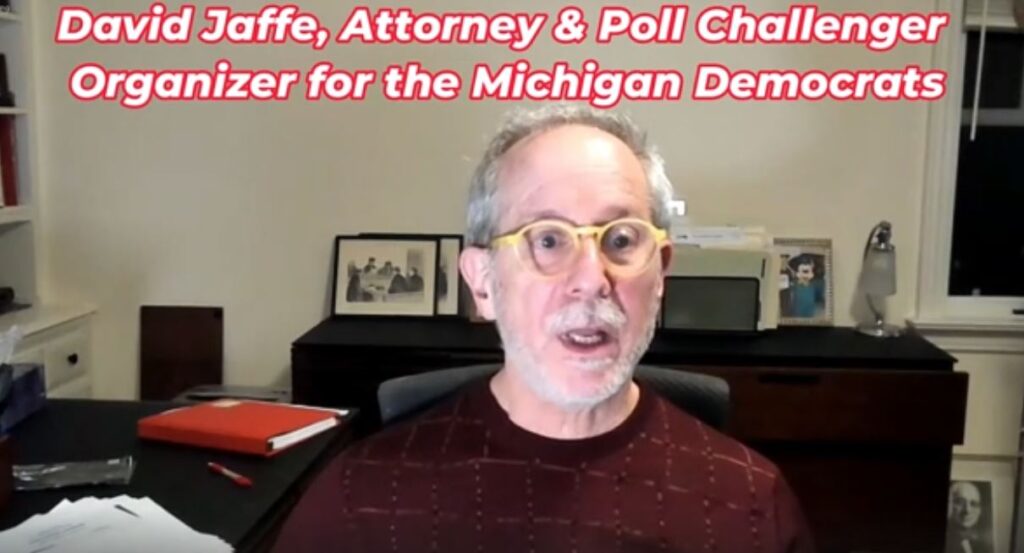In October 2024, David Jaffe conducted online training sessions for poll challengers representing the Democratic Party in Detroit, Michigan. This training comprised three separate sessions and was attended by Shane Trejo, a journalist focused on election integrity and active in Detroit politics. Trejo documented this training, highlighting new regulations regarding poll challengers in Michigan, which aim to prevent any potential monopolization or obstruction of the election process, as experienced during the 2020 election when GOP challengers were barred from counting rooms. Under the new Democrat-led framework, poll challengers have been given defined powers, but there are stringent conditions that can lead to their removal if they challenge the legal basis of their assertions repeatedly.
Throughout the training, David Jaffe, a noted liberal activist, allegedly made derogatory remarks about Republican ballot challengers while laying out a strategic approach for the Democrat poll challengers. This approach included tactics that suggested the intention to undermine the presence of election integrity activists. The training also contained an alarming declaration regarding the suppression of the electronic poll books to obscure potential voting issues from challengers, as well as logistical details about the coordination of the Democrat teams during the election. These sessions aimed to empower their poll challengers while establishing a framework that would allow for the rapid processing of ballots, regardless of their legitimacy.
Shane Trejo’s recorder insights gave a disturbing glimpse into the environment fostered by the training sessions. Jaffe made statements that underscored a categorical disdain for election integrity initiatives and framed them as obstacles to the voting process. The training emphasized that their primary objective was not merely to oversee the counting of votes but rather to create a chaotic atmosphere that could potentially delay results, offering cover for narratives of electoral fraud. The implication was that their focus was on counteracting any challenges posed by the opposition rather than ensuring a transparent and fair election process.
Moreover, Jaffe emphasized the strategic use of security personnel to prevent Republican challengers from executing their responsibilities. This assertion hinted at a premeditated effort to control the narrative and the flow of the election procedure to facilitate the passage of any ballots, legitimate or otherwise. The mention of team leads who possess mobility advantages over standard challengers illuminated the hierarchical approach within the Democrat apparatus, which was purportedly designed to safeguard their electoral process but appeared to stifle genuine oversight.
The insights gathered from these training sessions suggest a troubling partnership between the Democratic poll challengers and election officials in Detroit, designed to limit the presence and efficacy of Republican oversight. Jaffe’s instructions seemingly revealed a concerted plan to disadvantage Republican challengers through intimidation and strategic obfuscation rather than promoting an equitable examination of ballots. Shane Trejo asserted that these tactics illustrate a blatant disregard for the fundamental principles underlying free and fair elections, leading to concerns regarding the integrity of the electoral process.
In summary, the training led by David Jaffe serves as a manifesto of the Democratic strategy in Michigan for the upcoming elections, emphasizing not the verification of electoral fairness but rather the pursuit of a seamless operation—even at the cost of transparency. Shane Trejo’s revelations indicate that it is crucial for those concerned about election integrity to be well-informed about these tactics, thus enabling Republican challengers to equip themselves better against a coordinated effort aimed at preventing legitimate scrutiny of the election process. The discourse established within this training underscores a significant battle line in contemporary political contests, where procedural integrity may be sacrificed for partisan gain.

